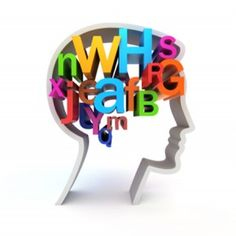
The first thing to note about learning difficulties is that it does not have anything to do with a person’s intelligence. There are plenty of successful and smart people who have learning difficulties. Even Harry Potter has a learning difficulty! Well, not Harry Potter exactly – but Daniel Radcliffe, the actor who played him. Steven Spielberg, the famous director, is dyslexic. And so is Whoopi Goldberg; the actress who is one of the few people to have a Grammy, an Emmy, an Academy Award and a Tony Award. Michael Phelps, the swimmer who holds the record for most number of Olympic medals, has ADHD.
The second thing to note is that although navigating life with such difficulties can be challenging, it is manageable and there are plenty of resources available to help children, parents and caregivers cope.
Let’s take a look at a few of such learning difficulties, shall we?
Credits: https://www.sri.com/work/projects/improving-outcomes-students-learning-disabilities-math
ADHD
One of the more well-known learning difficulties, Attention Deficit Hyperactivity Disorder is defined by the inability to pay attention and having overactive behaviour which makes learning tough. This includes (but not limited to) impulsive and hyperactive behaviour such as;
- Overreacting to emotional situations or being impatient while waiting for a turn.
- Difficulties in learning new things
- Being bored with activities unless they are very enjoyable
- Finding it tough to focus
- Moving about frequently (even when seated)
- Talking constantly
Dyslexia
Dyslexia comprises of the difficulties in interpreting words, letters and learning to read. It stems from the way the brain processes letters and other symbols. Some of the difficulties they may face are;
- Confusing the letter “b” for “p” or “n” for “u” – this is termed as directionality confusion
- Unable to match letters to sounds – eg; not knowing how the letter “a” sounds
- Reading in a choppy and slow manner
- Not being able to recognise a word they were able to read, when it appears again
- Mixing up the order of letters in a word while writing – eg; “meat” instead of “team”
Dysgraphia
Dysgraphia affects writing abilities such as having poor handwriting, trouble with spelling and putting thoughts on a piece of paper. Some indicators may include;
- Holding the pencil in an awkward position or even positioning the paper or body in a different way
- Having a mixture of handwriting; cursive and then switching to print, lower and upper case letters or having irregular sizes when writing
- Inconsistent spaces between words and letters
- Unfinished words or letters and/or omitted words
- Messy and often unreadable handwriting
Dyscalculia
Credits: http://kidshear.com.au/central-auditory-processing-disorder/
Largely unheard of, dyscalculia is a learning issue that causes difficulties in understanding Maths. This makes it tough for children to understand Mathematical concepts and to make sense of numbers. For some, they do not understand the logic behind a particular concept whereas for others, they understand the concept but are unable to apply it. Symptoms may include:
- Having trouble counting
- Finds it tough to connect numbers to a real-life scenario. Eg; the number “7” can be applied to “7 apples” or “7 goldfishes”
- Difficulty in memorising numbers and tend to skip numbers when recollecting them in order
- Struggles to identify symbols such as “+”, “-“, “x” and use them correctly
- Finds it hard to recognise patterns and sort items by size, shape or colour
Language Processing Disorder
Language Processing Disorder (LPD) is characterised by difficulties in making sense of what you say and how you understand what is being said. Children with LPD may exhibit symptoms such as;
- Difficulty in attaching meaning to spoken language
- Struggling to express thoughts, verbally and on written form
- Taking long to answer a question
- Using descriptive words instead of the intended word; saying “the round thing” instead of “ball”
- Shows poor reading comprehension
Although this list might be a little overwhelming, it is important to remember that not all children learn at the same pace. Some might take longer to learn the alphabet or to count, whereas some kids move at a quicker pace.
That being said, parents have a strong instinct when it comes to their children and you should listen to it. Observe your child, talk to his/her teachers and seek a specialist’s opinion if you feel that your child is struggling with learning or displaying behaviour that is usually linked to a learning disorder. With proper care and support, children might not deem their condition as a “difficulty” and accept that they are different, and not in a bad way.
 |
Singapore's online marketplace for your education resources ranging from books to learning toys! Click to shop! |
Don't miss out on our articles! You will find them useful somehow, from parenting to exam preparation tips to best deals! Subscribe to our newsletter to receive updates on articles and best deals!


